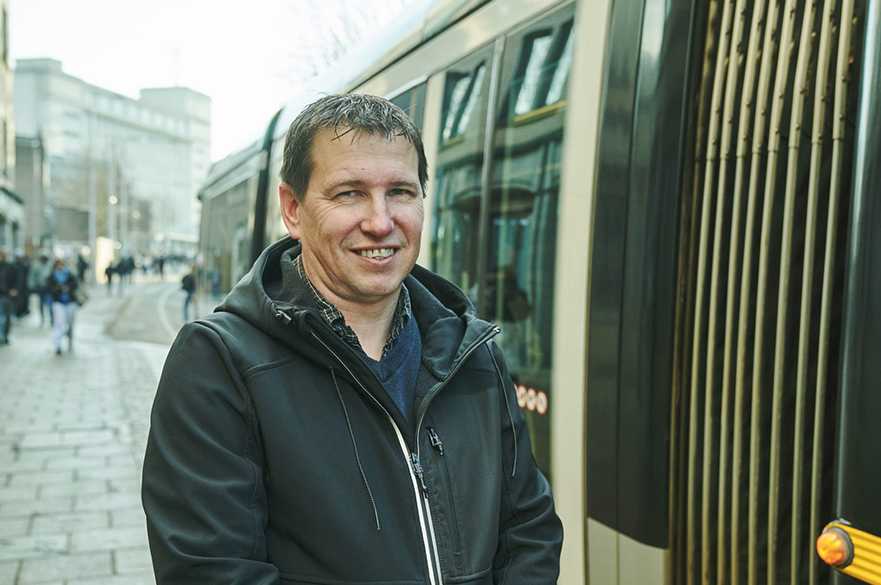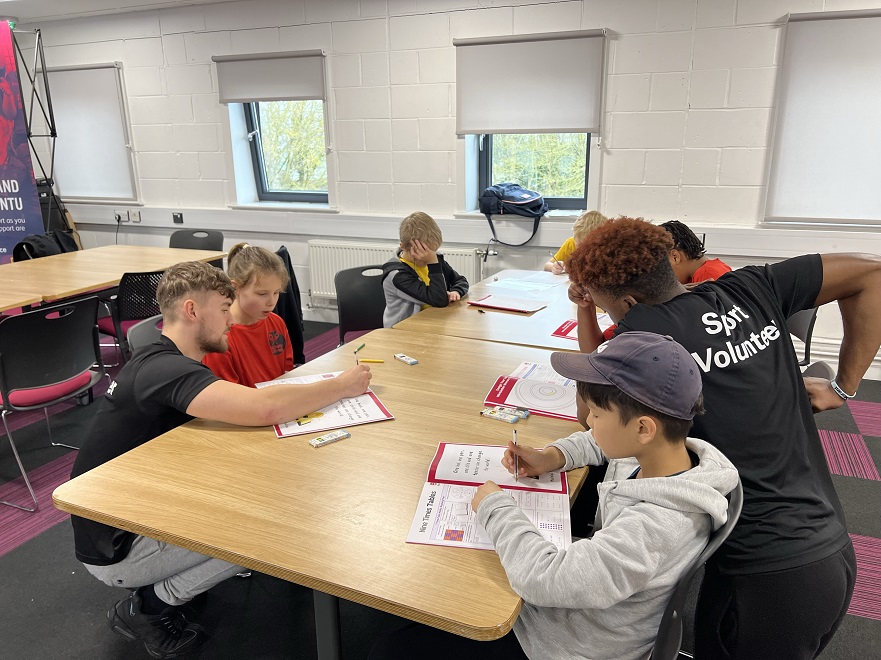National database to tackle violence against women and girls on public transport
A critical gap in tackling violence against women and girls (VAWG) on public transport in the UK is set to be addressed through the creation of a national incident database by Nottingham Trent University (NTU) and Connected Places Catapult.

Despite being highlighted as a national priority by the Home Office in 2021, the Suzy Lamplugh-2022 report indicated a staggering 88% of respondents experienced unwanted attention on public transport, with only 14% reporting such incidents. Fear of victimisation has become a significant barrier to reporting.
A 2022 Department for Transport (DfT) study identified 13 recommendations to tackle VAWG on public transport. Of particular significance is recommendation nine: Emphasizing the creation of a national intelligence database capturing incident reports from all transport modes and areas.
The new project led by Dr Andrew Newton, Professor of Criminology and Policing at NTU, is aiming to elevate this recommendation to an immediate priority.
The 'Report it to Stop It' (RITSI) campaign was launched by Transport for London (TfL) in 2015 in a bid to improve reporting mechanisms for sexual violence on public transport. However, challenges arise outside of London where public transport is often fragmented among multiple operators, each with its own reporting mechanisms. A lack of standardisation and multiple responsible parties for personal security further complicate the issue.
British Transport Police handles rail systems, while buses and trams fall under the jurisdiction of local police forces, creating a disjointed approach to crime prevention. Operators record incidents under broad 'health and safety' policies, leading to underreporting and a lack of confidence in reporting VAWG incidents to the police.
This project aims to collaborate with industry stakeholders to address these challenges and propose viable solutions for the establishment of a National Incident Database (NID) for VAWG on public transport. While the technology to build a database is well established, the project recognises the need for a concentrated effort to mobilise governance agreements, enhance data sharing and develop partnership solutions co-created with female public transport users.
It will bring together industry experts, public and third-sector representatives, and transport user communities to fast-track the creation of a database prototype. The goal is to make the combatting of violence against women and girls on public transport an important priority and ensure a safer and more secure travel experience.
Professor Newton said: "I am really excited about the opportunity to develop this valuable research and thankful to the Connected Places Catapult for supporting this. We need to create a system that integrates reporting of violence and women and girls across all modes of public transport - bus, rail, and trams for example, to bring together a more holistic understanding of the problems experienced by those using the system - whether waiting at stops, travelling on vehicles, or walking to and from stops and stations.
"There needs to be an integrated response by local police forces, British Transport Police, transport operators, and community safety partnerships. But this can only happen with reliable information – which in turn requires that those reporting incidents feel safe to do so, and confident that there will be follow on actions - to address the problems they highlight. Lots of apps and text reporting systems exist. But how can we join up intelligence and responses for the safety of all passengers and staff."
Connected Places Catapult's Social Research Specialist, Alizée McLorg, said of the project: "We know that transport safety for women and girls is a challenge that needs to be improved, and I am really pleased that Dr Andrew Newton and Connected Places Catapult are able to work on this together. Women and girls should be able to easily and quickly report something that makes them feel or be unsafe while travelling, and they should have the confidence that there will be a follow on action.
"While there are many reporting tools, they aren’t coordinated at a national level, and Andrew's project is an important step to help integrate various data so that we have a better understanding of the bigger picture. Having a reliable and coordinated database that captures these reports can support police, transport operators and authorities to better respond to incidents, with the ultimate aim for making the transport system feel and be safer for women and girls."
This project was funded by the Innovation Launchpad Network+
-
Notes for editors
About Nottingham Trent University
Nottingham Trent University (NTU) received the Queen’s Anniversary Prize for Higher and Further Education in 2021 for cultural heritage science research. It is the second time that NTU has been bestowed the honour of receiving a Queen’s Anniversary Prize for its research, the first being in 2015 for leading-edge research on the safety and security of global citizens.
The Research Excellence Framework (2021) classed 83% of NTU’s research activity as either world-leading or internationally excellent. 86% of NTU’s research impact was assessed to be either world-leading or internationally excellent.
NTU was awarded The Times and The Sunday Times Modern University of the Year 2023 and ranked University of the Year in the Whatuni Student Choice Awards 2023. It was awarded Outstanding Support for Students 2020 (Times Higher Education Awards), University of the Year 2019 (Guardian University Awards, UK Social Mobility Awards), Modern University of the Year 2018 (Times and Sunday Times Good University Guide) and University of the Year 2017 (Times Higher Education Awards).
NTU is the 5th largest UK institution by student numbers, with approximately 40,000 students and more than 4,400 staff located across five campuses. It has an international student population of 7,000 and an NTU community representing over 160 countries.
Since 2000, NTU has invested £570 million in tools, technology, buildings and facilities.
NTU is in the UK’s top 10 for number of applications and ranked first for accepted offers (2021 UCAS UG acceptance data). It is also among the UK’s top five recruiters of students from disadvantaged backgrounds and was the first UK university to sign the Social Mobility Pledge.
NTU is ranked the second most sustainable university in the world in the 2022 UI Green Metric University World Rankings (out of more than 900 participating universities).
About the Innovation Launchpad Network+
The Engineering and Physical Sciences Research Council (EPSRC) funded Innovation Launchpad Network+ brings together leading universities, the Catapult Network and regional innovation ecosystems and enriches the exchange of ideas and knowledge across these organisations.
By bringing together cross-functional teams from across academia and the Catapults, the Innovation Launchpad Network+ will play a key role in providing a pipeline of new understanding. The Innovation Launchpad Network+ will identify and create a range of engagement opportunities to enable academic researchers to collaborate with the Catapults, grow the maturity of new technologies, tools and techniques and disseminate the new understanding created across the Catapult Network.
A key part of our vision is to enable collaboration between individuals and groups who are yet to engage with the Catapults.
The Researcher in Residence (RIR) scheme promotes academic engagement and is designed to enable researchers to work within the Catapult environment as part of one or more centres, undertaking a project or activity in an area of strategic importance for Catapults. As well as increasing knowledge exchange and co-creation between academia and the Catapults, these awards allow the researcher to gain deep industry knowledge across a range of sectors and nurture the talents and skills development across both research and Catapult.
About the Catapult Network
The Catapult Network is composed of nine world-leading technology and innovation centres established by and working in partnership with Innovate UK. They support businesses in transforming great ideas into valuable products and services. They deliver impact across the UK economy, enabling businesses to thrive in global markets.
For more information visit the Catapult Network
- Category: Press office; Research; School of Social Sciences


